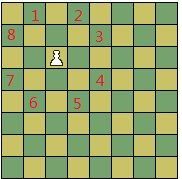- 一文掌握python常用的list(列表)操作
程序员neil
pythonpython开发语言
目录一、创建列表1.直接创建列表:2.使用list()构造器3.使用列表推导式4.创建空列表二、访问列表元素1.列表支持通过索引访问元素,索引从0开始:2.还可以使用切片操作访问列表的一部分:三、修改列表元素四、添加元素1.append():在末尾添加元素2.insert():在指定位置插入元素五、删除元素1.del:删除指定位置的元素2.remove():删除指定值的第一个匹配项3.pop():
- c++ 内存处理函数
heeheeai
c++开发语言
在C语言的头文件中,memcpy和memmove函数都用于复制内存块,但它们在处理内存重叠方面存在关键区别:内存重叠:memcpy函数不保证在源内存和目标内存区域重叠时能够正确复制数据。如果内存区域重叠,memcpy的行为是未定义的,可能会导致数据损坏或程序崩溃。memmove函数能够安全地处理源内存和目标内存区域重叠的情况。它会确保在复制过程中不会覆盖尚未复制的数据,从而保证数据的完整性。效率:
- leetcode中等.数组(21-40)python
九日火
pythonleetcode
80.RemoveDuplicatesfromSortedArrayII(m-21)Givenasortedarraynums,removetheduplicatesin-placesuchthatduplicatesappearedatmosttwiceandreturnthenewlength.Donotallocateextraspaceforanotherarray,youmustdoth
- Rust 所有权 简介
东离与糖宝
rust后端rust开发语言
文章目录发现宝藏1.所有权基本概念2.所有权规则3.变量作用域4.栈与堆4.1栈(Stack)4.2堆(Heap)5.String类型5.1String类型5.2String的内存分配5.3所有权与内存管理5.4String与切片6.变量与数据交互方式6.1移动(Move)6.2.克隆(Clone)7.所有权与函数7.1.传递参数7.2.返回值总结发现宝藏前些天发现了一个巨牛的人工智能学习网站,通
- 单线程执行器(`SingleThreadedExecutor`)来处理节点的任务
课堂随想
moveit2机器人
intmain(intargc,char**argv){rclcpp::init(argc,argv);rclcpp::NodeOptionsnode_options;node_options.automatically_declare_parameters_from_overrides(true);automove_group_node=rclcpp::Node::make_shared("mo
- matlab游标标注移动,matlab实现图形窗口的数据游标
莫白想
matlab游标标注移动
DatacursorsforfigurewindowSeveralrelatedfunctions:CreateCursorsetsupaverticalcursoronallaxesinafigure.Thecursorscanbemovedaroundusingthemouse.MultiplecursorsaresupportedineachfigureGetCursorLocationre
- 2021-08-24 Say no to the next social
春生阁
Youknowthesort.Drinkswitholdfriendsyouhavenothingincommonwithanymore.Yoursecondcousinonceremoved’sbabyshowerwitha$100minimumpresentspend.Thesesortsofsocialengagementssuckthelivingtimeandmoneyoutofyou.
- 华为USG6000E-S12防火墙Key exchange failed.无法SSH解决方案
redmond88
网络技术ssh华为运维
由于目前防火墙算法太新,导致crt和xshell的版本无法登陆,按以下方法解决一、下载华为本地加载除弱安全算法组件包之外的组件包https://download.csdn.net/download/redmond88/89620664?spm=1001.2014.3001.5503二、先改后缀名为.cfg,上传文件到防火墙三、在用户视图下改后缀名为.mod四、move文件到$_install_mo
- Python OS模块操作文件
小丫头呀
#Python随笔python
在Python中,可以使用os模块主要对文件进行重命名,删除等一些操作以下为os模块常用的方法示例:重命名操作importosos.rename('Test.txt','Test_重命名.txt')#参数1:要重命名的源文件#参数2:对源文件要重新命名的名称删除文件importosos.remove('Test_重命名.txt')#参数为要删除的源文件名称,如果该文件不存在则抛出异常创建空文件夹i
- 【LINUX】SHELL贪吃蛇
缘起性本空
java前端服务器
MapHeight=19MapWidth=17SnakeLength=3SnakeX=(234)SnakeY=(555)MoveDirection="Right"Food=(714)Map=(11111111111111111119100000000000000000191000000000000000001910000000000000000019100000000000000000191000
- Java的迭代器接口
shymoy
java开发语言
文章目录是什么iterator内部方法iterabe内部方法如何实现是什么iteratorIterator是java中用于遍历集合中元素的一个接口,提供了一种通用方法来遍历集合中的元素。内部方法booleanhasNext():检查是否还有下一个元素。如果有,返回true,否则返回false。Tnext():返回集合中的下一个元素。voidremove():从集合中移除最后一次调用next()返回
- Jetpack LiveData源码分析
xiangxiongfly915
#AndroidJetpack系列JetpackLiveData源码分析
文章目录JetpackLiveData源码分析前提源码分析注册订阅流程LiveData#observe()LifecycleRegistry#addObserver()ObserverWithState#dispatchEvent()LiveData#removeObserver()LiveData$LifecycleBoundObserver类LifecycleBoundObserver#sho
- [C++11] 移动语意和移动构造函数
图王大胜
计算机学科基础开发语言c++移动语意移动构造函数
说明:移动语义(MoveSemantics)是C++11引入的一个重要概念,旨在提高大型对象(特别是那些涉及资源管理的对象)的复制效率。移动语义允许资源从一个对象“移动”到另一个对象,而不是进行昂贵的复制操作。这种机制通过右值引用(right-valuereference)和移动构造函数(moveconstructor)以及移动赋值操作符(moveassignmentoperator)来实现。而移
- 11-js事件基础
echozzi
JavaScript基础javascript前端开发语言
文章目录一、事件概念二、事件绑定方式1.onxxx2.事件监听器addEventListener三、事件解绑方式方法1:覆盖原事件处理(置空)方法2:移除事件监听器removeEventListener四、事件派发方式方法1:onxxx方法2:dispatchEvent五、事件对象window.event六、点击事件的光标坐标点1.以页面为参考坐标page2.以可视窗口为参考client3.相对事
- vue3打包 error in node_modules/@types/node/stream/web.d.ts 错误解决办法
柒先生~
前端javascript开发语言
ue3项目打包的时候突然报错,错误如下ERRORFailedtocompilewith1error14:13:57errorinnode_modules/@types/node/stream/web.d.ts:469:56TS1005:'?'expected.467|//IfReportingObservercheckisremoved,thetypeherewillformacircularre
- Hbase - kerberos认证异常
kikiki2
之前怎么认证都认证不上,问题找了好了,发现它的异常跟实际操作根本就对不上,死马当活马医,当时也是瞎改才好的,给大家伙记录记录。KrbException:ServernotfoundinKerberosdatabase(7)-LOOKING_UP_SERVER>>>KdcAccessibility:removestorm1.starsriver.cnatsun.security.krb5.KrbTg
- 坚持自己,而不是被环境改变·115天(Youtube语言学习方法)
左撇子槿希
图片发自App1.Pleaseremovetheblackpart/bit.黒い(くろい)ところは取り除(とりのぞ)いてください。2.I’mlookingoraplacetostay.泊まる(とまる)所(ところ)を探(さが)しています。3.Doyouknowwhoisthatperson?あの人は誰(だれ)か知っていますか。4.Whichrestaurantischeap?レストランはどこが安い(
- Spring 在多线程环境下如何确保事务一致性
「已注销」
SpringBootspringmysqljava
目录问题在现如何解决异步执行多线程环境下如何确保事务一致性事务王国回顾事务实现方式回顾编程式事务利用编程式事务解决问题问题分析完了,那么如何解决问题呢?小结问题在现我先把问题抛出来,大家就明白本文目的在于解决什么样的业务痛点了:public void removeAuthorityModuleSeq(Integer authorityModuleId, IAuthorityService iAut
- Delta3d 简单的控制物体例子
Sunday
Delta3D
//Inthistutorial,youwillchangethepreviousHelloWorldapplicationto//furtheryourunderstandingofmotionmodels.Previouslyyoulearnedhowtoplacea//camerainasceneandmovethecamerapositionviamouseandkeyboardinput
- PHP导入Excel文件后缀xlsx与xls的处理问题
木子李0531
PHPExcelthinkphp5thinkPHPPHPExcelxlsxxls
publicfunctionimportData(){//先执行文件上传$file=$this->request->file('files');//获取表单上传文件if(empty($file)){$this->error('请选择上传文件');}else{//移动到框架应用根目录public/excel$info=$file->move(ROOT_PATH.'public'.DS.'Excel'
- 「DR」他爱的,只是你爱他的感觉/Aniel-Vega
箫凌
全世界只有不到3%的人微信搜索并且关注了箫凌你真是个特别的人策划:箫凌「fromOvertureStudio/角一文化」姓名:Aniel-Vega出生年月日:1996年6月1日星座:双子座把我想的,都说给你听。模特,演員,自由撰稿人,大二學生,2017亞洲小姐.花椒忘憂家族簽約主播,開平影視文化協會理事,廣東微電影聯盟會員,林涧樹洞創始人,開平潮人主編,新浪微博頭條文章作者,新浪微遊戲平台綜合版版
- vue对话框禁止后面页面滚动条滚动的解决方式
小橘碎碎记
vue.jsjavascript前端
转载https://www.cnblogs.com/mxl123/p/11818125.htmlstopSrcoll(){varmo=function(e){e.preventDefault();};document.body.style.overflow='hidden';document.addEventListener("touchmove",mo,false);//禁止页面滑动},open
- vue如何禁止弹窗后面的滚动条滚动?
IT侠客行
Vue.js
methods:{//禁止滚动stop(){varmo=function(e){e.preventDefault();};document.body.style.overflow=‘hidden’;document.addEventListener(“touchmove”,mo,false);//禁止页面滑动},/取消滑动限制/move(){varmo=function(e){e.preventD
- 禁止弹窗底部页面滑动解决方案整理
七月的你
项目中问题解决方案整理javascriptjscssvue.jshtml
1.如果弹窗内容不可滑动,仅展示方案一:只需要给弹窗蒙层加上@touchmove.prevent即可实现,无兼容性问题方案二:在弹窗蒙层加上touch-action:none;在iPhone5和ipad上可能会没有效果方案三:打开弹窗时,设置body的overflow属性为hidden并阻止默认事件document.body.style.overflow='hidden';varfn=functi
- Libra能否引领全球开放金融大变革
苏州九尊
图片发自App摘要“Libra的横空出世,会带动更多的交易场景涌现,很可能把全世界十亿级以上人口引向通往投资数字资产世界的大门。重新看看世界,未来可预期的时间里,加密数字资产一定会有更加广阔的市场基础。”《在线访谈》20期访谈实录:访·谈·来·啦·劳小鱼:大家晚上好!我是今晚的主持人之一,来自IMOVentures的小鱼!非常荣幸和开心今晚可以在这里主持这场访谈。首先,请允许我再次隆重介绍我们今晚
- Java集合-----List接口及其实现类:ArrayList、LinkedList、Vector
Colourful.
Java集合java集合
文章目录List接口概述List接口的常用方法List接口的实现类ArrayList源码分析类继承关系ArrayList中的属性:ArrayList构造函数:ArrayList中常用方法添加操作:add()删除操作:remove()获取元素:get()ArrayList是如何实现序列化的?ArrayList的总结LinkedList源码分析类继承关系类成员属性类构造器LinkedList的List
- idea2023版使用Free MyBatis plugin插件报错
涛哥是个大帅比
问题mybatisjavaidea
项目场景:新版的idea使用FreeMyBatisplugin插件报错问题描述错误信息java.lang.Throwable:'#LineMarkerInfo(T,TextRange,Icon,int,Function,GutterIconNavigationHandler,Alignment)'isdeprecatedandgoingtoberemovedsoon.Pleaseuse`LineM
- linux--vim
猿饵块
linuxvim运维
上下左右---变为--ABCD原因是vim的版本有问题,卸载原来的版本,重新下载即可:sudoapt-getremovevim-commonsudoapt-getinstallvim
- Golang 使用 os 及 filepath库 操作文件及目录
MissU o_O
Golanggolang开发语言后端
一、文件和目录操作方法文件操作//创建文件os.Create(namestring)//删除文件os.Remove(namestring)//使用strings.HasSuffix()判断是否包含此后缀名或者使用数组判断//重命名文件os.Rename(oldpath,newpathstring)//读取文件os.ReadFile(namestring)//重写文件os.WriteFile(nam
- Ubuntu 开机出现 recovering journal 无法进入图形界面解决流程(不通用,自用)
Artintel
学习ubuntu
远程连接进入命令行:rm-rf/etc/X11/xorg.confcp/etc/X11/xorg.conf.failsafe/etc/X11/xorg.confsudoservicelightdmstopsudoapt-getremovenvidia*cdjohn/qudong+cuda9.0\+\cudnn/sudochmoda+xnv.runsudo./nv.run-no-x-check-no
- Spring4.1新特性——Spring MVC增强
jinnianshilongnian
spring 4.1
目录
Spring4.1新特性——综述
Spring4.1新特性——Spring核心部分及其他
Spring4.1新特性——Spring缓存框架增强
Spring4.1新特性——异步调用和事件机制的异常处理
Spring4.1新特性——数据库集成测试脚本初始化
Spring4.1新特性——Spring MVC增强
Spring4.1新特性——页面自动化测试框架Spring MVC T
- mysql 性能查询优化
annan211
javasql优化mysql应用服务器
1 时间到底花在哪了?
mysql在执行查询的时候需要执行一系列的子任务,这些子任务包含了整个查询周期最重要的阶段,这其中包含了大量为了
检索数据列到存储引擎的调用以及调用后的数据处理,包括排序、分组等。在完成这些任务的时候,查询需要在不同的地方
花费时间,包括网络、cpu计算、生成统计信息和执行计划、锁等待等。尤其是向底层存储引擎检索数据的调用操作。这些调用需要在内存操
- windows系统配置
cherishLC
windows
删除Hiberfil.sys :使用命令powercfg -h off 关闭休眠功能即可:
http://jingyan.baidu.com/article/f3ad7d0fc0992e09c2345b51.html
类似的还有pagefile.sys
msconfig 配置启动项
shutdown 定时关机
ipconfig 查看网络配置
ipconfig /flushdns
- 人体的排毒时间
Array_06
工作
========================
|| 人体的排毒时间是什么时候?||
========================
转载于:
http://zhidao.baidu.com/link?url=ibaGlicVslAQhVdWWVevU4TMjhiKaNBWCpZ1NS6igCQ78EkNJZFsEjCjl3T5EdXU9SaPg04bh8MbY1bR
- ZooKeeper
cugfy
zookeeper
Zookeeper是一个高性能,分布式的,开源分布式应用协调服务。它提供了简单原始的功能,分布式应用可以基于它实现更高级的服务,比如同步, 配置管理,集群管理,名空间。它被设计为易于编程,使用文件系统目录树作为数据模型。服务端跑在java上,提供java和C的客户端API。 Zookeeper是Google的Chubby一个开源的实现,是高有效和可靠的协同工作系统,Zookeeper能够用来lea
- 网络爬虫的乱码处理
随意而生
爬虫网络
下边简单总结下关于网络爬虫的乱码处理。注意,这里不仅是中文乱码,还包括一些如日文、韩文 、俄文、藏文之类的乱码处理,因为他们的解决方式 是一致的,故在此统一说明。 网络爬虫,有两种选择,一是选择nutch、hetriex,二是自写爬虫,两者在处理乱码时,原理是一致的,但前者处理乱码时,要看懂源码后进行修改才可以,所以要废劲一些;而后者更自由方便,可以在编码处理
- Xcode常用快捷键
张亚雄
xcode
一、总结的常用命令:
隐藏xcode command+h
退出xcode command+q
关闭窗口 command+w
关闭所有窗口 command+option+w
关闭当前
- mongoDB索引操作
adminjun
mongodb索引
一、索引基础: MongoDB的索引几乎与传统的关系型数据库一模一样,这其中也包括一些基本的优化技巧。下面是创建索引的命令: > db.test.ensureIndex({"username":1}) 可以通过下面的名称查看索引是否已经成功建立: &nbs
- 成都软件园实习那些话
aijuans
成都 软件园 实习
无聊之中,翻了一下日志,发现上一篇经历是很久以前的事了,悔过~~
断断续续离开了学校快一年了,习惯了那里一天天的幼稚、成长的环境,到这里有点与世隔绝的感觉。不过还好,那是刚到这里时的想法,现在感觉在这挺好,不管怎么样,最要感谢的还是老师能给这么好的一次催化成长的机会,在这里确实看到了好多好多能想到或想不到的东西。
都说在外面和学校相比最明显的差距就是与人相处比较困难,因为在外面每个人都
- Linux下FTP服务器安装及配置
ayaoxinchao
linuxFTP服务器vsftp
检测是否安装了FTP
[root@localhost ~]# rpm -q vsftpd
如果未安装:package vsftpd is not installed 安装了则显示:vsftpd-2.0.5-28.el5累死的版本信息
安装FTP
运行yum install vsftpd命令,如[root@localhost ~]# yum install vsf
- 使用mongo-java-driver获取文档id和查找文档
BigBird2012
driver
注:本文所有代码都使用的mongo-java-driver实现。
在MongoDB中,一个集合(collection)在概念上就类似我们SQL数据库中的表(Table),这个集合包含了一系列文档(document)。一个DBObject对象表示我们想添加到集合(collection)中的一个文档(document),MongoDB会自动为我们创建的每个文档添加一个id,这个id在
- JSONObject以及json串
bijian1013
jsonJSONObject
一.JAR包简介
要使程序可以运行必须引入JSON-lib包,JSON-lib包同时依赖于以下的JAR包:
1.commons-lang-2.0.jar
2.commons-beanutils-1.7.0.jar
3.commons-collections-3.1.jar
&n
- [Zookeeper学习笔记之三]Zookeeper实例创建和会话建立的异步特性
bit1129
zookeeper
为了说明问题,看个简单的代码,
import org.apache.zookeeper.*;
import java.io.IOException;
import java.util.concurrent.CountDownLatch;
import java.util.concurrent.ThreadLocal
- 【Scala十二】Scala核心六:Trait
bit1129
scala
Traits are a fundamental unit of code reuse in Scala. A trait encapsulates method and field definitions, which can then be reused by mixing them into classes. Unlike class inheritance, in which each c
- weblogic version 10.3破解
ronin47
weblogic
版本:WebLogic Server 10.3
说明:%DOMAIN_HOME%:指WebLogic Server 域(Domain)目录
例如我的做测试的域的根目录 DOMAIN_HOME=D:/Weblogic/Middleware/user_projects/domains/base_domain
1.为了保证操作安全,备份%DOMAIN_HOME%/security/Defa
- 求第n个斐波那契数
BrokenDreams
今天看到群友发的一个问题:写一个小程序打印第n个斐波那契数。
自己试了下,搞了好久。。。基础要加强了。
&nbs
- 读《研磨设计模式》-代码笔记-访问者模式-Visitor
bylijinnan
java设计模式
声明: 本文只为方便我个人查阅和理解,详细的分析以及源代码请移步 原作者的博客http://chjavach.iteye.com/
import java.util.ArrayList;
import java.util.List;
interface IVisitor {
//第二次分派,Visitor调用Element
void visitConcret
- MatConvNet的excise 3改为网络配置文件形式
cherishLC
matlab
MatConvNet为vlFeat作者写的matlab下的卷积神经网络工具包,可以使用GPU。
主页:
http://www.vlfeat.org/matconvnet/
教程:
http://www.robots.ox.ac.uk/~vgg/practicals/cnn/index.html
注意:需要下载新版的MatConvNet替换掉教程中工具包中的matconvnet:
http
- ZK Timeout再讨论
chenchao051
zookeepertimeouthbase
http://crazyjvm.iteye.com/blog/1693757 文中提到相关超时问题,但是又出现了一个问题,我把min和max都设置成了180000,但是仍然出现了以下的异常信息:
Client session timed out, have not heard from server in 154339ms for sessionid 0x13a3f7732340003
- CASE WHEN 用法介绍
daizj
sqlgroup bycase when
CASE WHEN 用法介绍
1. CASE WHEN 表达式有两种形式
--简单Case函数
CASE sex
WHEN '1' THEN '男'
WHEN '2' THEN '女'
ELSE '其他' END
--Case搜索函数
CASE
WHEN sex = '1' THEN
- PHP技巧汇总:提高PHP性能的53个技巧
dcj3sjt126com
PHP
PHP技巧汇总:提高PHP性能的53个技巧 用单引号代替双引号来包含字符串,这样做会更快一些。因为PHP会在双引号包围的字符串中搜寻变量, 单引号则不会,注意:只有echo能这么做,它是一种可以把多个字符串当作参数的函数译注: PHP手册中说echo是语言结构,不是真正的函数,故把函数加上了双引号)。 1、如果能将类的方法定义成static,就尽量定义成static,它的速度会提升将近4倍
- Yii框架中CGridView的使用方法以及详细示例
dcj3sjt126com
yii
CGridView显示一个数据项的列表中的一个表。
表中的每一行代表一个数据项的数据,和一个列通常代表一个属性的物品(一些列可能对应于复杂的表达式的属性或静态文本)。 CGridView既支持排序和分页的数据项。排序和分页可以在AJAX模式或正常的页面请求。使用CGridView的一个好处是,当用户浏览器禁用JavaScript,排序和分页自动退化普通页面请求和仍然正常运行。
实例代码如下:
- Maven项目打包成可执行Jar文件
dyy_gusi
assembly
Maven项目打包成可执行Jar文件
在使用Maven完成项目以后,如果是需要打包成可执行的Jar文件,我们通过eclipse的导出很麻烦,还得指定入口文件的位置,还得说明依赖的jar包,既然都使用Maven了,很重要的一个目的就是让这些繁琐的操作简单。我们可以通过插件完成这项工作,使用assembly插件。具体使用方式如下:
1、在项目中加入插件的依赖:
<plugin>
- php常见错误
geeksun
PHP
1. kevent() reported that connect() failed (61: Connection refused) while connecting to upstream, client: 127.0.0.1, server: localhost, request: "GET / HTTP/1.1", upstream: "fastc
- 修改linux的用户名
hongtoushizi
linuxchange password
Change Linux Username
更改Linux用户名,需要修改4个系统的文件:
/etc/passwd
/etc/shadow
/etc/group
/etc/gshadow
古老/传统的方法是使用vi去直接修改,但是这有安全隐患(具体可自己搜一下),所以后来改成使用这些命令去代替:
vipw
vipw -s
vigr
vigr -s
具体的操作顺
- 第五章 常用Lua开发库1-redis、mysql、http客户端
jinnianshilongnian
nginxlua
对于开发来说需要有好的生态开发库来辅助我们快速开发,而Lua中也有大多数我们需要的第三方开发库如Redis、Memcached、Mysql、Http客户端、JSON、模板引擎等。
一些常见的Lua库可以在github上搜索,https://github.com/search?utf8=%E2%9C%93&q=lua+resty。
Redis客户端
lua-resty-r
- zkClient 监控机制实现
liyonghui160com
zkClient 监控机制实现
直接使用zk的api实现业务功能比较繁琐。因为要处理session loss,session expire等异常,在发生这些异常后进行重连。又因为ZK的watcher是一次性的,如果要基于wather实现发布/订阅模式,还要自己包装一下,将一次性订阅包装成持久订阅。另外如果要使用抽象级别更高的功能,比如分布式锁,leader选举
- 在Mysql 众多表中查找一个表名或者字段名的 SQL 语句
pda158
mysql
在Mysql 众多表中查找一个表名或者字段名的 SQL 语句:
方法一:SELECT table_name, column_name from information_schema.columns WHERE column_name LIKE 'Name';
方法二:SELECT column_name from information_schema.colum
- 程序员对英语的依赖
Smile.zeng
英语程序猿
1、程序员最基本的技能,至少要能写得出代码,当我们还在为建立类的时候思考用什么单词发牢骚的时候,英语与别人的差距就直接表现出来咯。
2、程序员最起码能认识开发工具里的英语单词,不然怎么知道使用这些开发工具。
3、进阶一点,就是能读懂别人的代码,有利于我们学习人家的思路和技术。
4、写的程序至少能有一定的可读性,至少要人别人能懂吧...
以上一些问题,充分说明了英语对程序猿的重要性。骚年
- Oracle学习笔记(8) 使用PLSQL编写触发器
vipbooks
oraclesql编程活动Access
时间过得真快啊,转眼就到了Oracle学习笔记的最后个章节了,通过前面七章的学习大家应该对Oracle编程有了一定了了解了吧,这东东如果一段时间不用很快就会忘记了,所以我会把自己学习过的东西做好详细的笔记,用到的时候可以随时查找,马上上手!希望这些笔记能对大家有些帮助!
这是第八章的学习笔记,学习完第七章的子程序和包之后
